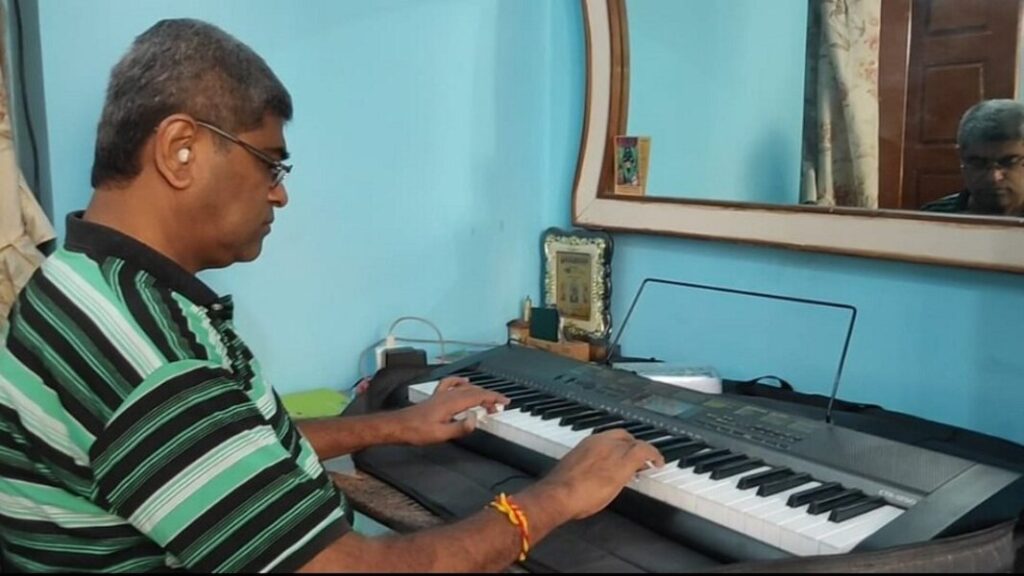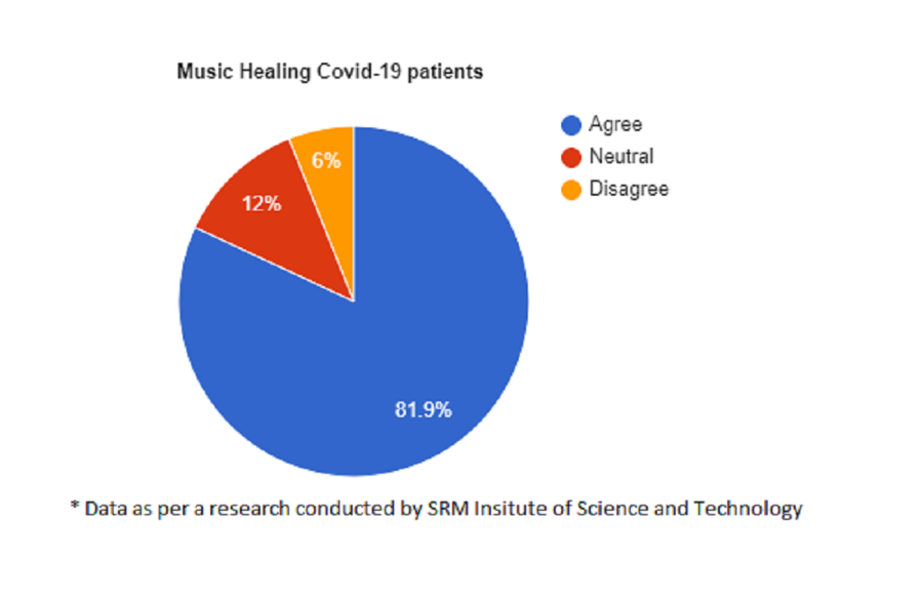Demand for music therapy increased during the pandemic, say therapists.
Many people turned to music therapy as a way of dealing with their problems as the pandemic caused stress, anxiety and emotional loss.
Sapna, aged 36, was pregnant when she got Covid. She lost the baby. To cope with the trauma, she turned to music therapy. “I listened to calming music like shlokas and bhajans that was recommended to me by my therapist everyday which elevated me emotionally and filled me with positivity. My son is autistic and goes for music therapy. With therapy his speech has improved a lot,” she said.
Kamakshi Khurana, founder of ‘The Sound Space’ said, “With music therapy, I focus on opening up the chakras that are affected after a person contracts covid-19. The throat chakra and the heart chakra are affected the most. With music we make the patients practice rhythmic breathing to expand their lung capacity.” She added, “With the pandemic, music therapy has become more accessible as now people can seek an online session and also the awareness has increased due to which there a hike in patients is opting for music therapy.”
Rashmi, a music therapist said, “There is a 15 to 20 percent increase in the patients opting for music therapy after the pandemic than it was earlier. As now people can have online therapy sessions as per their convenience, I am handling 21 clients in a week which I wasn’t able to before the pandemic.”
She said that after assessing patient’s taste in music, she incorporates Carnatic music as it has healing components. Music brings out an individual’s emotional vent and helps them express.
Active music therapy directly acts on the seven chakras of our body and passive music therapy (also known as music medicine) provides relaxation via receptive listening, she added.
Kamal Singh, a music therapist, said that Music therapy is a healing process aimed at improving the quality of life after an individual is diagnosed with an illness. For a Covid patient, the therapy will help them accept the internal fear they have of dying of the virus. For a dementia patient, the therapy empowers them to acknowledge their fear of forgetting things.
Mr. Kumar, a classical music teacher said, “Music is everywhere and makes a lot of things in our lives. In meditation and yoga we keep humming the ‘omkaraswarupa’ that helps us calm and relax whereas the western notes like rock, pop, etc gives one pleasure. Also melody and the pitch of the music are two important aspects. Even learning music brings in minor behavioral changes in individuals.”

He added that a lot of elderly people (between the age of 45 to 65 years) have signed up for learning music and are his students trying to reduce stress from their lives. Music helps them have their moment of relaxation out of the busy schedule.
Samay Ajmera, another music therapist said, “music therapy is based on the individual’s diagnosis and age. The treatment plan keeps changing as we proceed with sessions. And music therapy alone can’t cure so we work with a lot of counselors, speech therapists and psychiatrists alongside.”
He added, “An individual is not required to be trained to seek music therapy. The science behind it is that everybody is pre-disposed to music as even in the womb the fetus is introduced to rhythm as the first thing it hears is the rhythm of the heart and the rush of the blood.”
The American Music Therapy Association 2020 Workforce Analysis revealed that nearly 2 million people received music therapy in 2019.

A research paper, revealed music has helped 81.5 percent covid-19 patients overcome from the fear of isolation and their grief. It can be combined with yoga, art therapy and can be effectively incorporated in daily life, say therapists.





